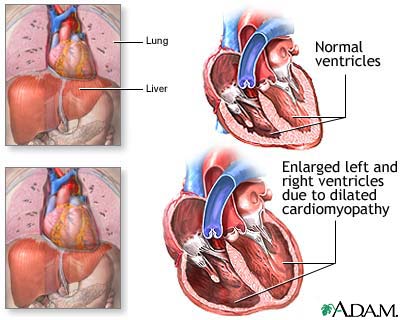 |
| What is a Heart Attack? |
A heart attack is when the blood flow to part of the heart muscle becomes blocked. When the blood flow becomes blocked it must be restored quickly or the part of the heart that is deprived of blood can die. If you think that you, or someone around you, is having a heart attack then it is important to seek out help immediately. If treatment for a heart attack is started within one hour of when the symptoms start then there is a better chance of the treatment working. Since the heart is the muscle that supplies the rest of your body with oxygen rich blood it is crucial that it is functioning properly. Even a few moments without blood flow to the rest of the body can cause major damage to other organs.
Every year over a million people in the United States have heart attacks. Most of the heart attacks can be attributed to the lifestyle of the person. For instance things such as smoking cigarettes, a lot of stress and a poor diet can contribute to the likelihood that a heart attack will occur. The above mentioned factors can put unnecessary strain on the heart muscle thus causing you to have a heart attack. It is important to call an ambulance if you feel like you are having a heart attack. Since the symptoms can come on suddenly it is best to not wait around before getting help. If you wait too long it may be too late.
Over half of the people who suffer a heart attack die. This is because they did not recognize the warning signs and seek out immediate help. Many people could make a full recover from a heart attack if they would just act a little bit quicker. When the heart is involved it is important to know the details. Being able to answer the question what is a heart attack will ensure that you know what is going on if you begin to feel symptomatic.






